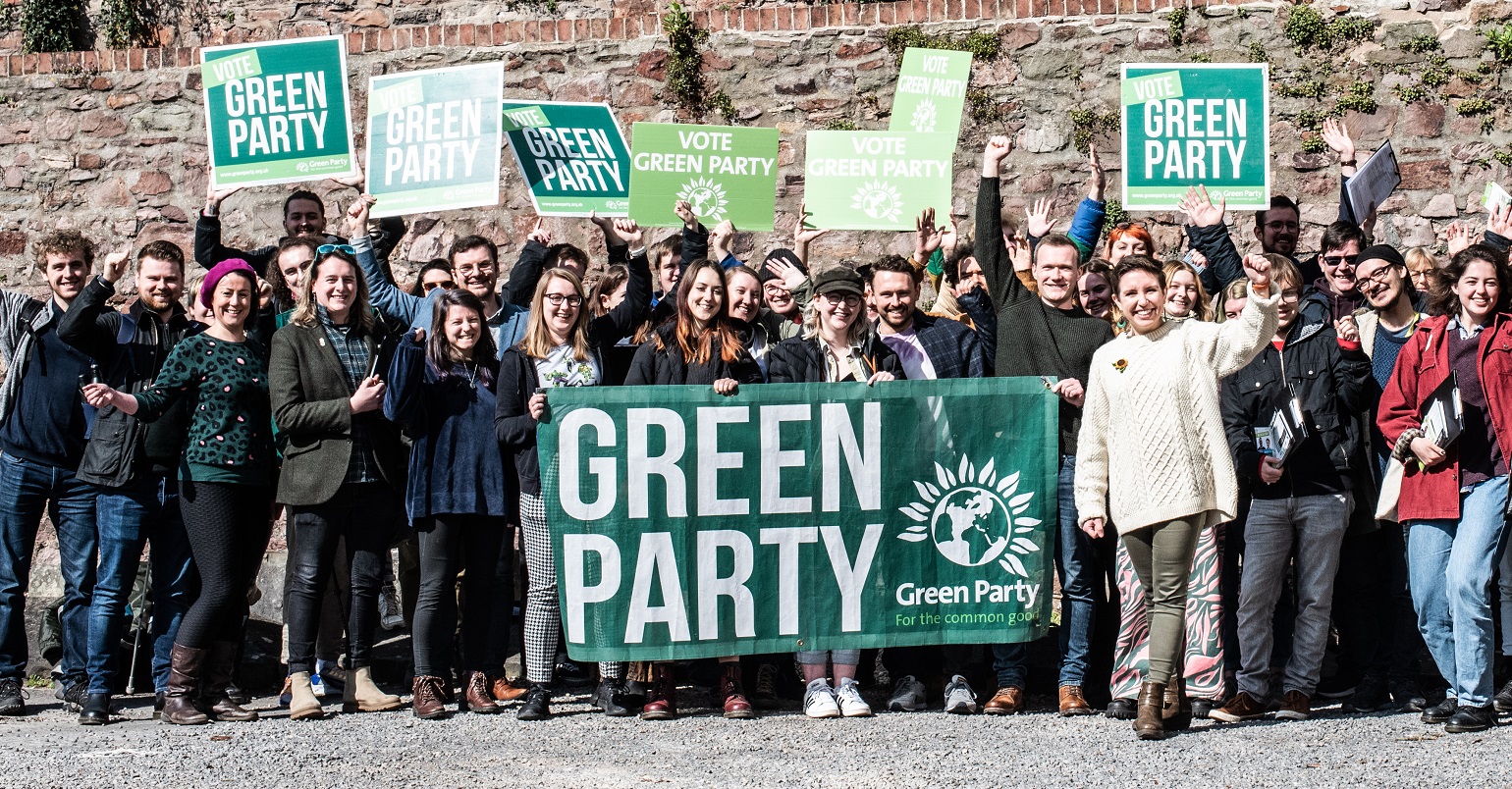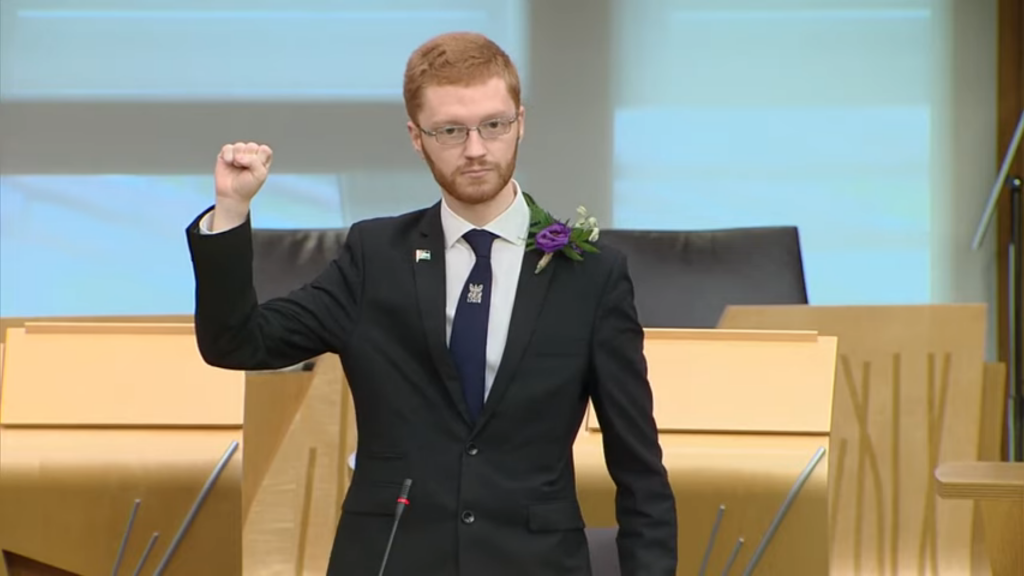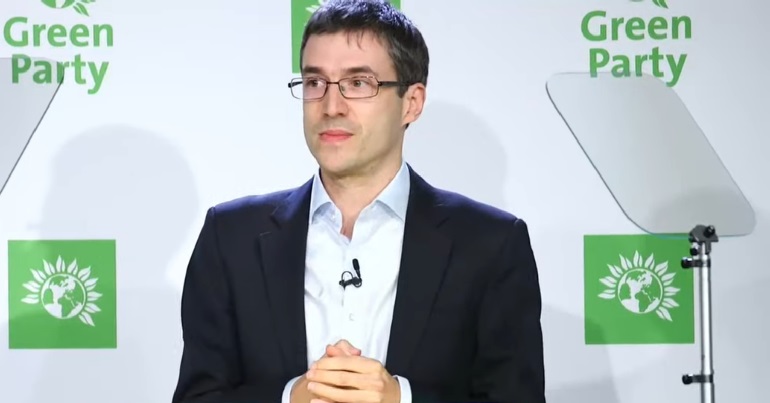After six years in Labour, I’ve now re-joined the Green Party

Seven years ago this month, I made the difficult decision to leave the Green Party and join Labour. Having spent five years active in the Greens, I switched parties in large part because Corbyn had been elected Labour leader, and I saw a once-in-a-generation chance to elect a socialist PM. But ultimately, the project was a disaster. Corbyn lost and was replaced by a Blairite, leftists were excluded from the party at all levels, and Labour moved substantially to the right in terms of policies and values. Corbyn was even himself excluded from the PLP. In every respect, Corbynism was a failure – and my tactic of joining to support him was a failure too, without question. I eventually drifted away from Labour, feeling directionless, adrift and politically hopeless. Until now.
As Yoda observed in The Last Jedi (2017), failure is the greatest teacher. And what the disastrous failure of Corbynism taught me, essentially, was that the Greens are the future of the left. I’ve spent a long time thinking about this, trying to figure out the right path. But ultimately, there was really only one choice – and this time, it wasn’t a difficult decision at all.
First, I should explain what I mean by “failure”. Obviously, Corbynism lost in 2017 and 2019. But it also failed internally too. Given a golden opportunity to reform and strengthen the democratic structures of Labour – making it friendlier to the left – Corbyn and his allies bottled it totally, bending to the will of the irreconcilable Labour Right at every stage. Open selection for MPs was blocked, the leadership election process was barely altered, the power of regional boards and the NEC to overrule local parties was left unchanged, the Parliamentary Labour Party (PLP) continued to be a bastion of Blairites and proportional representation (PR) was firmly opposed. After five years of a left-wing leader, the Labour left is now weaker than it was in 2015. That isn’t just because of internal opposition. It’s because we failed.
What is the lesson from this? My takeaway is that Labour, structurally, is incapable of being reformed (especially now). This isn’t the USA, where socialists like Alexandria Ocasio-Cortez can win state-run primaries running against right-wing incumbent Democrats. In the UK, Labour’s all-powerful National Executive will simply block you from running if you’re left-wing. And if by some miracle you manage to make it through the selection process, then you will be subject to the Labour whip, which (as we have seen) can be withdrawn at any moment if you challenge Starmer.
The path for democratic socialists, then, is to challenge Labour externally – and beat them in electoral contests that cannot be controlled by Starmer. This will give the left an independent voice in councils, devolved legislatures and the Commons. That won’t be easy, but it’s the only way.
If one accepts this conclusion, one is left with two choices. The first is to start a new socialist party. Breakthrough, RESPECT, the Socialist Labour Party, Left Unity, the Scottish Socialist Party – all were formed to challenge Labour from the left. But I ultimately consider this a waste of time. Not only would it take decades to build the infrastructure and reputation of a new party and turn it into a serious force (an attempt that would probably fail anyway), but every new leftist party of the past 50 years has collapsed quickly due to bitter infighting and/or personality disputes. All except one.
Since their formation in 1972, the Greens in England and Wales have been an occasionally uneasy alliance of socialists, left-liberals and ecologists – with the socialist contingent becoming much larger in the past two decades. Their values are unquestionably left-wing, and their policies lean to the left of the 2019 Labour manifesto. So far, so good. But the Greens have also achieved the sole distinction of avoiding the bitter infighting that has consumed and wrecked other left-wing organisations. They have had their divisions (sometimes big ones) but even as their counterparts on the further left have utterly collapsed, the Greens have patched up their splits and kept moving slowly forward. That suggests to me that they are doing something uniquely right, both organisationally and politically.
At the same time, the Greens are in the unique position of being the only nationwide left party to exercise actual political power. The Greens have led the municipal council in Brighton twice, lead multiple other councils and participate in coalitions across England. With the party gaining over 350 council seats between 2019 and 2022, the number of Greens exercising power and making a practical difference in local politics will only continue to increase. All of which is to say: they are undeniably a viable, growing force in England even under first-past-the-post (FPTP).
I have thus been convinced that the best hope for democratic socialism in Britain is to build the Green Party and keep it on a left-wing trajectory. This may not bear immediate fruit in the next general election (although the chance of a second Green MP is high), but with the British left facing a lengthy period in the political wilderness, now is the time to build and strengthen a party that can give voice to our political ideas on a national stage. I do not always agree with the Greens on every issue, but I align with their values and principles far more than those of Keir Rodney Starmer.
There is also one final point that has led me to the Greens: the prospect of proportional representation (PR). With Labour conference calling on Starmer to back PR, the prospect of PR being enacted is higher than it has ever been. I would thus argue that leftists need a political home not only that we agree with, but that also has the experience to win under PR and successfully govern in coalitions. And the Greens have proven they can do both time and time again. Practically speaking, I believe that the Greens are the only left party that could actually succeed – and so helping build them is a far more effective use of our time.
In summary, as a democratic socialist who has been alienated by Labour I find myself facing four choices: toiling away in Labour, waiting to be expelled; spending decades building a new socialist party from scratch; falling into political apathy and despair; or joining and building the Greens. In facing these choices I returned to the words of Yoda in The Last Jedi. He encouraged Luke Skywalker to accept his own “weakness, folly [and] failure” and learn from it. And Corbynism’s legacy is ultimately nothing but failure and loss. Learning from this requires one to change, not simply repeat the very Labour-centric strategies that led Corbynism into the abyss. The left can do nothing in Labour now but lose over and over again. But with the Greens, it can make a real difference.
So here I am. Back in the Greens. It was partially a choice based on principle (I do agree with them on most things), and partially a pragmatic choice (they are the only viable force for my politics). But in the end, it was most definitely not a difficult choice. I only wish I had made it sooner. Hopefully, I can make up for lost time.
PS. We hope you enjoyed this article. Bright Green has got big plans for the future to publish many more articles like this. You can help make that happen. Please donate to Bright Green now donate to Bright Green now.
Image credit: Matthew Phillip Long – Creative Commons




I joined the Ecology party in 1985 — which changed its name to the “Green” party later that year — and was an activist for six years (until being treated as a rival by another member who casually sabotaged everything I tried to do, got too much for me).
Most of its members locally (in Brighton & Hove) had come from the Labour party: which looked unlikely to be transformed any time soon by SERA, Labour’s “Socialist Environment and Reources Association” (which is still going).
My now oldest friend (still a Labour activist, as a Parish Councillor) was active in SERA and in Bricycles, a local cycling campaign. We long ago gave up trying to persuade each other to switch parties: though he was very unhappy at Labour “parachuting” an electoral candidate into his constituency, whose CLP rebelled and was excommunicated.
He was in turn very unhappy at the aggressiveness of Momentum (“Corbynistas”) towards longstanding members like him, and now with Labour’s General Secretary David Evans, as Starmer’s no.1 choice and expeller of Corbyn.
Having myself moved in 2010 from Brighton Pavilion to Brighton Kemptown, a marginal constituency, I greatly miss being able to vote for Caroline Lucas, and resent being forced to vote tactically. Around half a dozen Greens locally, having come from the Labour party, switched enthusiastically back to Labour with the advent of Corbyn: but, soon disillusioned by the aggressiveness of Momentum, most of them quickly started drifting back to the Green party.
And despite (at last) Labour’s suddenly very green-looking agenda, this is counteracted by its sharp turn to the right under Starmer, and his rejection of Proportional Representation despite its being wanted by a majority of Labour members and voters, CLPs and now unions too. PR is “not a priority” for Starmer, who has expressly banned it from Labour’s manifesto.
So Labour under Starmer is continuing in the old mould of a Tory-Labour duopoly, elected on minority vote shares, where Labour takes its turn in one election out of three. And our unrepresentative, undemocratic system of FPTP is perpetuated at the expense of parties like the LibDems and Greens, who feel forced into tactical voting in marginals (like mine) where UK elections are won or lost on the basis of a few hundred thousand “swing” votes.
In Brighton Kemptown we know from 2015 with national and local elections on the same day, that there is 50% suppressed Green vote: from the fact of twice as many votes being cast for Green Councillors (despite no local campaign), as for the Green Parliamentary candidate.
This part-supportive, part-rivalrous interchange between Greens and Labour has been going on for a long time, and seems unlikely to stop any time soon. Not until we get PR: which seems a long, long way away so as Starmer is concerned.
Starmer is not into power-sharing: and the legal terms of Labour membership means that any member found cooperating with party is expelled. This prohibits any kind of formal “progressive alliance”, though quiet grassroots cooperation remains feasible.
Eg in 2017, Labour activists were quietly delivering Green posters in Brighton Pavilion (I am told), while the Green candidate in Brighton Kemptown stood down. And I had an 2400mm × 1200mm poster in my window saying “KEMPTOWN GREENS VOTING LABOUR”. Together we got the sitting Tory candidate out.
Together, many of us want the same things. It’s a question of how best to achieve it.
There are some interesting points in here about the failure of Corbynism but the bit about the lack of internal division in the GPEW is nuts,isn’t it?
In my patch, Sheffield, much of the hard left of Labour have either been expelled or left. Importantly Momentum, at least in Sheffield, was never the hard left. Momentum was more of a positioning vehicle for some councillors and hangers on. The hard left were organised around Sheffield Labour Left who are now Sheffield Left. To some extent Momentum we’re perceived as a bunch of softies!
For us in Sheffield Greens the suspension of Alison Teal has deepened a schism that has long been there. SGP now looks much like the Labour Party. I make no secret that I am on Alison’s side: I just observe that the situation in the city looks like an old school faction fight.
Make no mistake the national leadership bears a responsibility for this situation. Pity as we still have a significant presence in a major city that could be thrown away.
Anyone know a good psephologist?
Well there you have it. A self confessed entryist. Does the Green Party really want to be taken over by Marxists and other assorted Trots and Tankies that the Labour party have expelled? The Greens would do well to avoid these people like the plague. They’re parasites and, as Folan has freely confessed above, would rather have their own Marxist parties but know these would fail as soon as they made contact with the electorate. So they find a suitable host to subvert to their Marxist agenda. One thing that unites both the Red Wall and Blue Wall seats is their rejection of far left ideology.
Serious green policies will only be delivered by bringing along the majority of voters. Becoming a vessel for the hard left ideologues to play out their revolutionary fantasies will be a disaster for the Green Party and the wider environmental movement. Don’t let these cranks in.
Honestly up until this comment I was quietly curious. Now, I’m sure. The Green Party contains an element of horrible thoughtlessness. Exactly like Labour.
I put hundreds of pounds into Labour coffers during Corbyn’s leadership. I walked the streets and did everything I could.
Why on earth would a left wing person subject themselves to people like you – they would just be slandered as “Marxists”?
No bitter infighting in the Greens?Er ……
I know, I ‘laughed’ at that bit.
‘Bitter’ tbf though is an understatement when it comes to divisions in GP. Not to mention the attacks on democracy some of us have witnessed.
These divisions appear to be better absorbed in a large party like Labour, but not in a small one like the Greens.